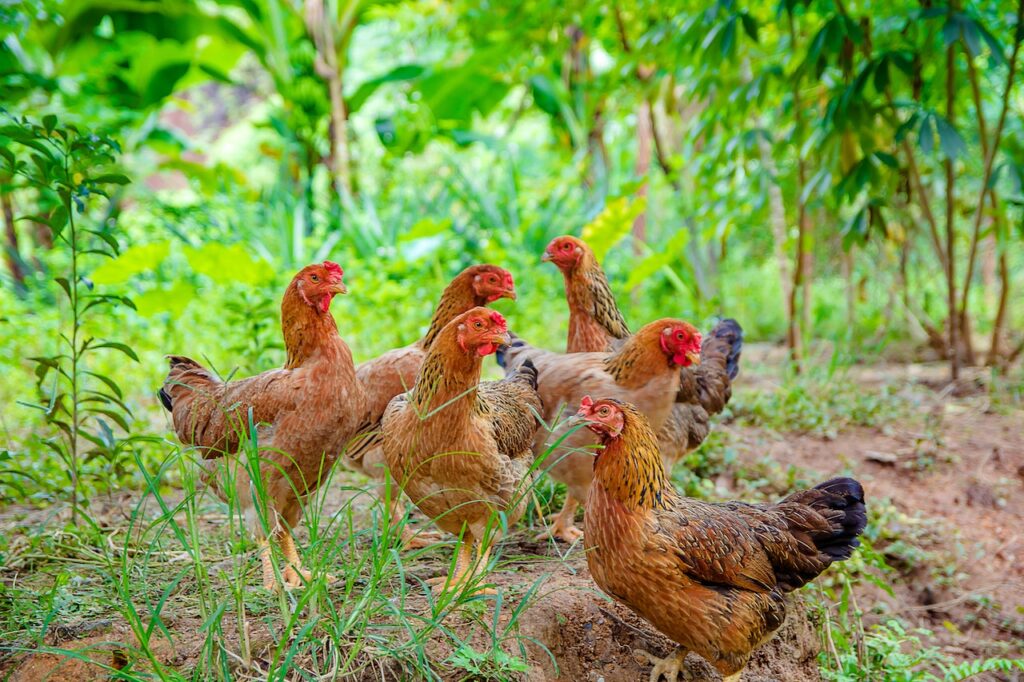
With the presence of avian influenza in the Bay Area, the San Mateo County Health Department advised residents with backyard birds or domestic flocks to protect them from contact with wild birds and for the public to take precautions when handling dead birds.
Highly contagious and often fatal to birds, highly pathogenic avian influenza (HPAI) poses minimal risk to people, but residents should exercise caution when interacting with birds.
The virus generally spreads from wild birds to domestic birds.
Multiple wild bird species, including Canada geese, American white pelican, California gull, mallard, turkey vulture, horned owl, red-tailed hawk, American crow and Cooper's hawk, have recently tested positive for HPAI.
Backyard poultry, commercial flocks and pet birds can become infected with HPAI through contact with wild birds, their droppings or shared sources of food and water.
Domestic poultry, including chickens and turkeys, are at greatest risk of contracting a serious disease.
"Avian flu is common in Northern California," said Marc Meulman, director of Public Health, Policy and Planning, which oversees Animal Control and Licensing. "While the risk to humans is small, we ask the public to avoid dead birds when possible and residents who raise chickens, roosters, turkeys and other poultry to avoid exposure to wild birds."
While avian influenza is not known to pose a risk to companion animals, such as dogs, the current strain has been found in wild carnivores, including foxes and coyotes. Pets should be kept as far away as possible from wild birds and their droppings.
Health authorities have indicated that those keeping pet birds and poultry should, whenever possible, secure the birds within an enclosure that wild birds cannot access.
Also, remove bird feeders and bird baths from the property to avoid attracting wild birds; store feed in sealed containers; clean up spilled or uneaten feed promptly; use water from commercial sources, rather than open ponds shared with wild birds; limit visits to your bird roosting area; and avoid contact with other birds or flocks as much as possible.
In addition, they call for cleaning and disinfecting clothing, footwear and equipment before entering poultry housing areas or handling birds; washing hands with soap and water before and after handling birds; and washing vehicles in commercial establishments after driving to other farms or areas with birds.
Peninsula Humane Society, which administers animal control services on behalf of the county, will collect dead birds and other dead animals from public property.
To request collection of dead birds from public property, you may call (650) 340-8200 Monday through Friday from 8:00 am to 6:00 pm and on weekends and holidays from 8:00 am to 5:00 pm.
For dead birds on private property, residents can collect them and turn them in to the Peninsula Humane Society, which calls for wearing waterproof gloves, N95 mask and eye protection, as well as using an inverted plastic garbage bag or shovel to collect and bag the bird.
After that, they call to wash hands thoroughly with soap and water and change clothes before having contact with domestic or pet birds.
Although avian influenza viruses generally do not infect people, there have been some rare cases of human infection.
According to the Centers for Disease Control and Prevention (CDC), infected birds shed the bird flu virus through saliva, mucus and feces. Human infections can occur when the virus enters a person's eyes, nose or mouth, or is inhaled.
This can happen through direct contact with sick birds, when the virus is in the air - in droplets or dust - and a person breathes it in, or possibly when a person touches something that has the virus on it and then touches their mouth, eyes or nose.
Symptoms of avian influenza virus infections in humans have ranged from no symptoms or mild illness, such as red eyes or mild flu-like upper respiratory symptoms, to severe symptoms, such as pneumonia requiring hospitalization, high fever, cough, sore throat, runny or stuffy nose, or difficulty breathing.
Less common signs and symptoms include diarrhea, nausea, vomiting or convulsions.
So far, no human cases of avian influenza have been reported in the Bay Area.
You may be interested in: E. coli outbreak progresses in U.S. with no known source yet


